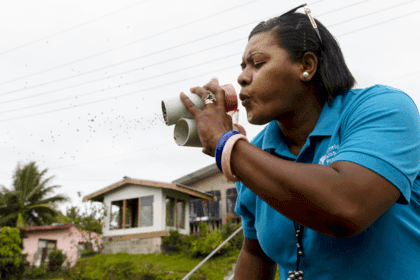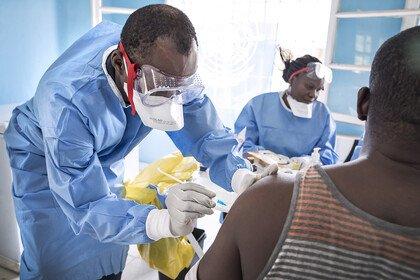
Science has the potential to solve many of the world’s most significant infectious disease threats through creating new vaccines. However, without significant reform of the markets and ecosystem which drive vaccine development, the likelihood is that the world will not see these come to fruition.
What’s inside
-
in-depth analysis of the barriers to vaccine development for important infectious disease threats.
Who this is for
- those involved in vaccine development: academic institutions, biotech companies, pharmaceuticals, vaccine manufacturers, regulators and multilateral institutions
- policy makers working in global health, pandemic preparedness and financing of vaccines
- governments facing infectious disease threats at national level.
Key findings
We need to rewrite the rules of the vaccine ecosystem and the market so they work for all infectious disease threats that affect people’s lives everywhere around the world.
Vaccine development for Covid-19 has shown us what can happen when there is a global market and funding for a vaccine. But many infectious diseases affect parts of the world without the wealth or R&D capacity to drive forward the vaccines which could prevent them.
Key findings of the report include:
- The current ecosystem for vaccine development faces systemic and interlinked challenges which must be addressed for vaccines to emerge for manyimportantinfectious disease threats. [PDF 382KB]
- New clinical trials and modelscouldmake vaccine development quicker, less costly, and more effective,but require regulatory acceptance and incentives for use. [PDF 185KB]
- Regulatory capacity is an importantenabler to wider improvements in how vaccines are developed and licensed. [PDF 134KB]
- Innovation and more diversity in manufacturing could help mitigate one of the most significant costs of vaccine development. [PDF 175KB]
- A radical rethink of the conventional models for the financing of vaccines will beneededto address themajorbarrier of the opportunity cost of investment in vaccines. [PDF 170KB]
There is no silver bullet to creating a fairer and most sustainable system for vaccine development. Only by tackling different barriers in a systemic fashion will it be possible to build a fairer and more effective vaccine ecosystem.
Downloads
Full report
Wellcome short briefings on key findings
- New approaches to clinical trials and development
- Financing future vaccines which lack 'commercial markets'
- Manufacturing and moving towards a more equitable and distributed system
- The critical role of regulatory systems in enabling the vaccines of the future
- The vaccine ecosystem and why it requires reform
Contact us
For more information contact: Charlie Weller, Head of Prevention, Infectious Disease at C.Weller@wellcome.org and Deborah King, Research Lead, Vaccines at D.King@wellcome.org
